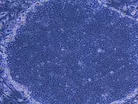Research team finds similarities between iPSCs, cancer cells

New research team from the University of California, Davis has found that a promising type of stem cell is being considered for a variety of diseases therapies is similar to the type of cells which cause cancer.
These cells known by the name of induced pluripotent stem cells (iPSCs) shows promise as a source of replacement cells and tissues to treat injuries, diseases and chronic conditions.
Paul Knoepfler, Associate Professor of cell biology and human anatomy said, “This is the first study that describes the specific molecular pathways that iPSCs and cancer cells share from direct comparison.” He also said, “It means that much more study is required before iPSCs can be used clinically. However, our study adds to a growing knowledge base that not only will help make stem cell therapies safer, but also provide us with new understandings about the cancer-causing process and more effective ways to fight the disease.”
The earlier studies state that both ES and iPSCs pose some health risks. There is a large amount of evidence that states that pluripotency may be related to rapid cellular growth, which is a characteristic of cancer.
The new study from UC Davis states that iPSCs as well as ES cells share many similarities to malignant cancer cells. The research team states that future experimental therapies using iPSCs for human transplants will most often not involve implanting iPSCs directly into the patient.
The team also found vital differences between the cell types which could provide clues to making iPSCs safer. “We found that we could program the cancer cells to behave more akin to normal stem cells,” said Knoepfler.
The team is continuing to study ways to make iPSCs safer, as well as delve further into the differences between iPSCs and cancer cells.



